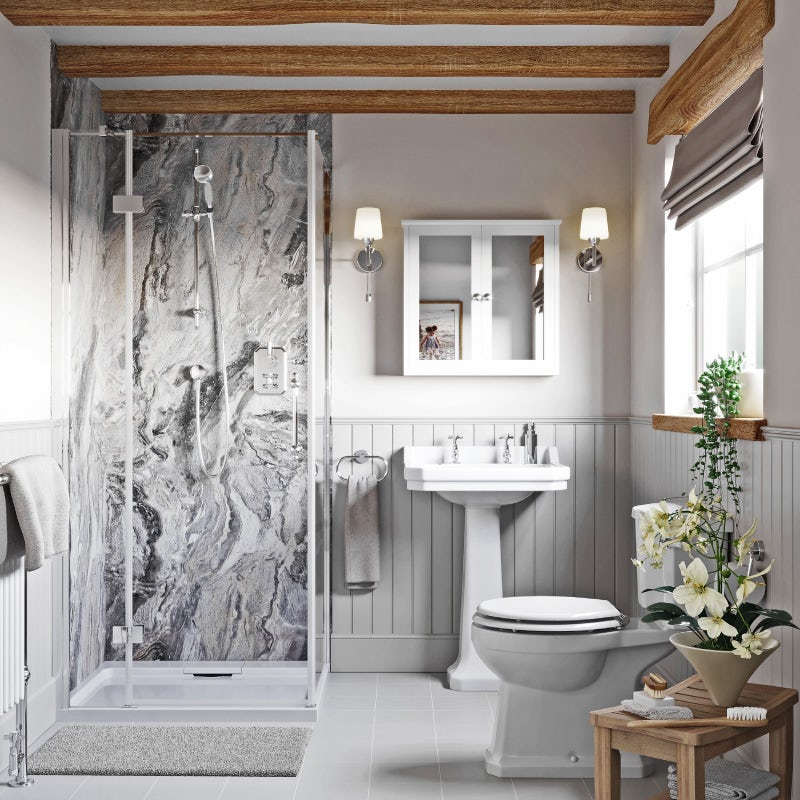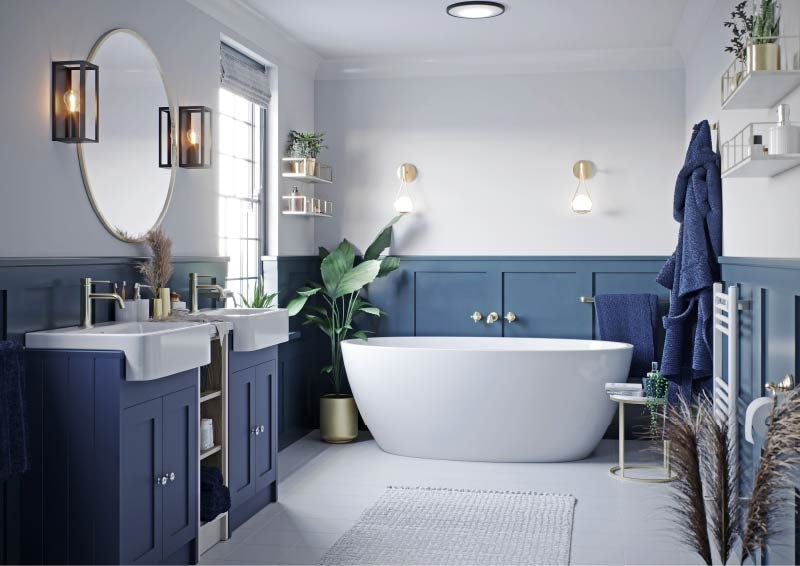It may seem a simple question, but it's one that many people ask. So, can you use bathroom paint on wood? We find out...
At Victoria Plum, we understand that home improvement projects often require careful consideration and the right knowledge to achieve the best results. One common question that arises is whether bathroom paint can be used on wood. Today, we'll delve into this topic and provide you with the answers you need.
Painting your bathroom: An introduction
When it comes to painting wooden surfaces in your bathroom, it's important to understand the unique challenges and requirements of this particular space. Bathrooms are high-moisture environments, prone to humidity and regular contact with water. As a result, any paint applied to surfaces must be able to withstand these conditions without compromising its appearance or durability.
Can bathroom paint be used on wood?
So, can bathroom paint be used on wood? The short answer is yes, but there are a few key considerations to keep in mind to ensure success.
First and foremost, it's crucial to select a paint specifically designed for bathrooms. These paints are formulated with moisture resistance in mind, making them more suitable for high-humidity environments. Look for paints labelled as "bathroom paint" or "moisture-resistant paint." These types of paints often contain additives that help protect against mould, mildew growth and other forms of moisture damage.
When it comes to wood surfaces, preparation is key. Before applying any paint, make sure the wood is clean, dry and free from any previous finishes or coatings. Sanding the surface lightly can help create a smooth and even base for the paint to adhere to. Additionally, consider applying a suitable primer specifically designed for wood surfaces. This will enhance adhesion and ensure a longer-lasting finish.
Once the surface is prepped and primed, it's time to apply the bathroom paint. Follow the manufacturer's instructions carefully, as application techniques may vary depending on the specific paint product. It's certainly worth using a high quality brush or roller to achieve a smooth and even coat. Multiple thin coats are often preferable to a single thick coat, as they allow for better drying and durability.
Maintaining your painted wood surfaces
While bathroom paint is formulated to withstand moisture, it's still important to take some precautions to maintain its longevity. Proper ventilation in your bathroom can help reduce humidity levels and prevent excessive moisture buildup. Additionally, be mindful of any direct water contact on the painted wood surfaces. Shower screens are great for this purpose. Wipe off any water spills or splashes promptly to prevent prolonged exposure.
If you're looking for a truly comprehensive solution for painting wood surfaces in your bathroom, consider using a specialist wood paint designed for moist environments. These types of paints are specifically formulated to provide exceptional moisture resistance and durability on wood surfaces, offering long-lasting protection and a beautiful finish.
Conclusion
In conclusion, bathroom paint can indeed be used on wood surfaces. However, it's essential to choose a paint specifically designed for high-moisture areas like bathrooms. Proper surface preparation, including cleaning and priming, is crucial for achieving a smooth and durable finish. Remember to follow the manufacturer's instructions and take necessary precautions to protect the painted wood surfaces from excessive moisture. By selecting the right paint and following these guidelines, you can enjoy a beautifully painted wooden surface in your bathroom for years to come.
More paint and colour ideas and advice for your bathroom
At Victoria Plum, you'll discover plenty of practical advice and fabulous inspiration for your bathroom DIY project, From painting behind a radiator to small bathroom colour ideas, simply search our blog for handy guides and articles.








